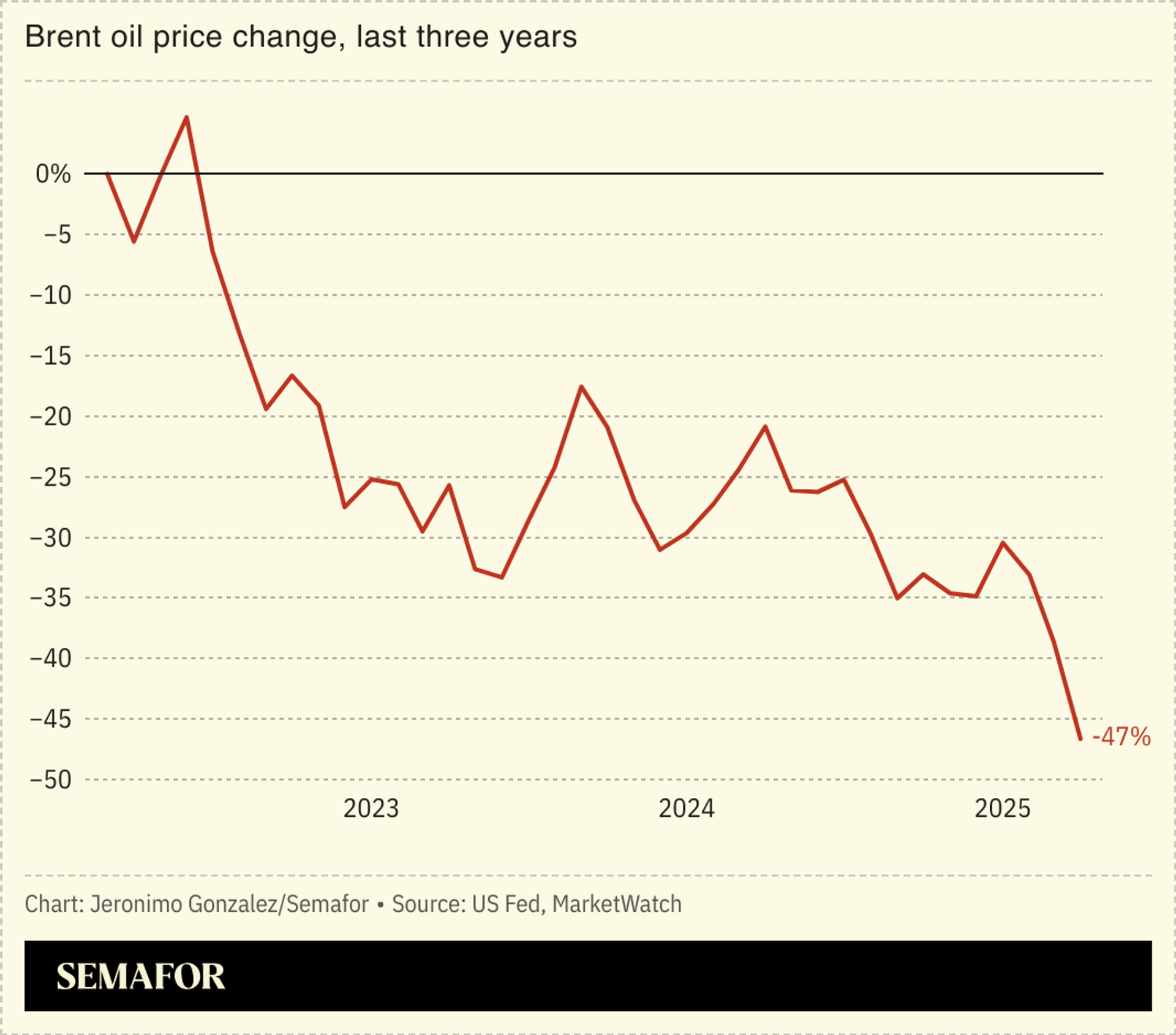The News
Nigerian officials raised concerns about sweeping US tariffs, which came into full effect on Wednesday, saying they could negatively impact Africa’s largest oil producer as crude prices drop over fears of a global recession.
The Trump administration imposed a 14% tariff on imports from Nigeria as part of last week’s “Liberation Day” announcement, blaming “unfair trade practices” that Washington says harm US exporters, including Nigeria’s import bans on items such as beef, pork, and certain pharmaceuticals.

The tariffs themselves have limited direct impact on Nigeria, given that oil and gas purchases are exempt. But they have served to drive oil prices lower: Crude traded at four-year lows on Tuesday, edging towards the $60 mark. For Nigeria, which gets about 90% of its foreign exchange earnings from oil exports, that amounts to significant lost income. “It’s the price effect, the oil price effect that may affect Nigeria,” Nigerian Finance Minister Wale Edun said.
The government’s $37 billion budget for 2025 — with its $8 billion deficit — was benchmarked against an international oil price of $75 a barrel.
In this article:
Know More
Trade between Nigeria and the US has grown over the past five years at an annualized rate of nearly 3%, according to the Observatory of Economic Complexity (OEC), a trade data platform.
But the country has come under fire as part of Trump’s aggressive focus on eliminating deficits with all US trade partners. While trade between both countries reached $9.9 billion in 2024, the US trade deficit in goods with Nigeria was $1.5 billion last year, the USTR said.
Nigeria has been a beneficiary of the African Growth and Opportunity Act (AGOA), a 25-year-old trade pact that allowed eligible sub-Saharan African countries duty-free access to the US market for certain goods. In 2023 Nigeria was the largest exporter to the US under the program with $3.8 billion of exports, though that was completely dominated by oil with just $200 million of non-oil exports. The current iteration of AGOA will expire this September unless it is renewed. But the pact is now widely expected to die as a result of Trump’s new tariffs.
For Nigeria, the fallout from Trump’s tariffs may stretch beyond oil exports. Jumoke Oduwole, Nigeria’s trade minister, expects them to “present destabilising challenges to price competitiveness and market access” for Nigerian businesses in the non-oil sector.
Past Nigerian governments have pushed to diversify the country’s economy to reduce a decades-old dependence on oil but without much success. The current moment now raises the urgency for Nigeria to strengthen quality control and traceability standards to gain acceptance into more global markets, Oduwole said.
Room for Disagreement
Mark Bohlund, credit research analyst at REDD Intelligence in Singapore, expects minimal impact from the tariffs on Nigeria. “The exports to the US of both Angola and Nigeria are almost exclusively oil so should be easy to place in other markets. So I don’t think there will be a wider impact,” he told Semafor.
Notable
- Nigeria, Angola, and Gabon — three of Africa’s largest oil producers — may find their bond markets unattractive to investors as the effects of the tariffs kick in.
